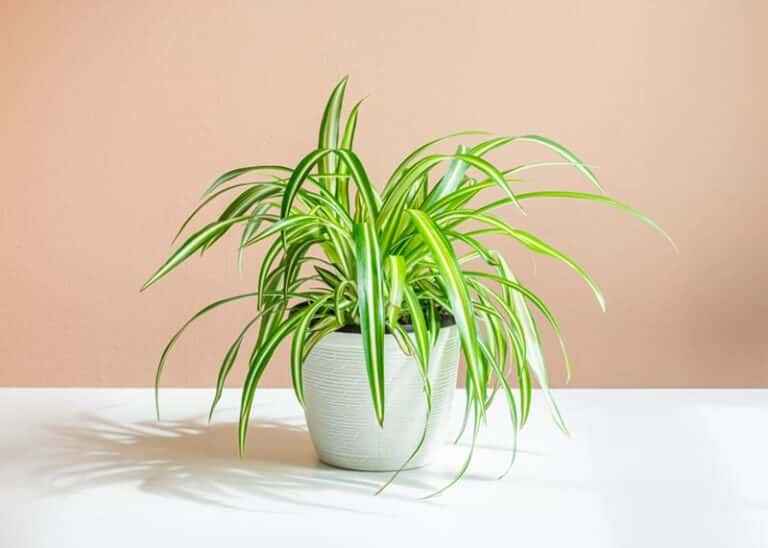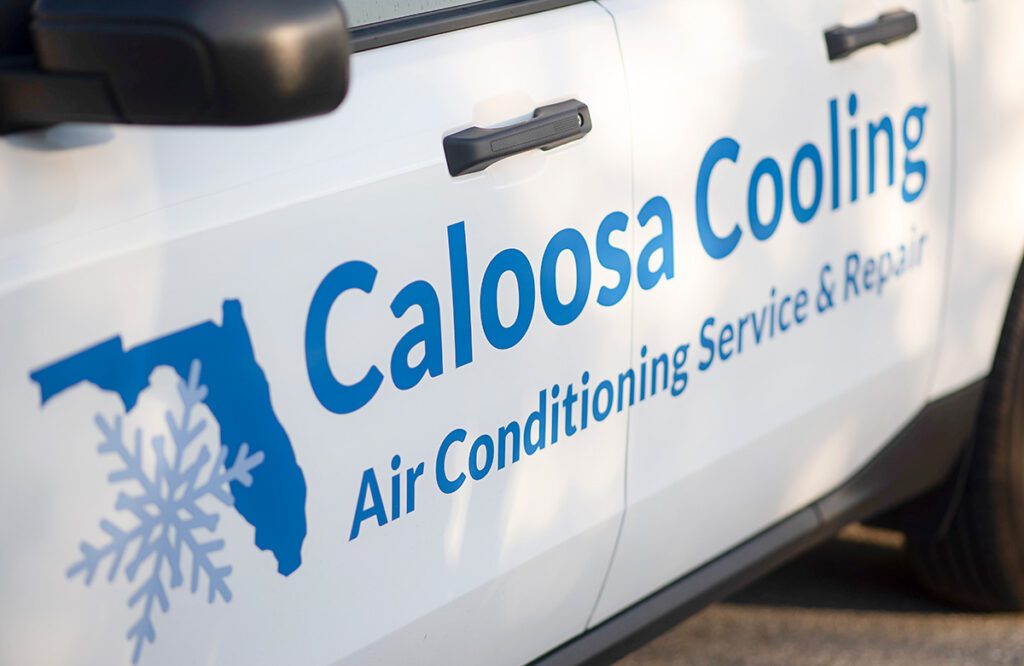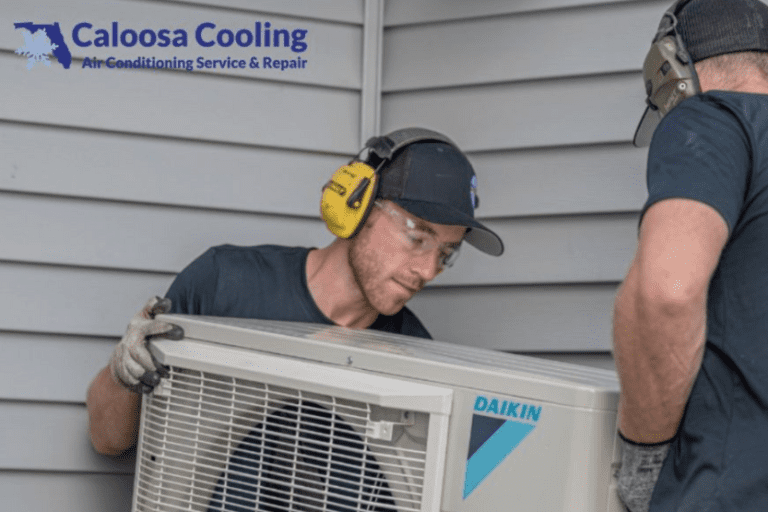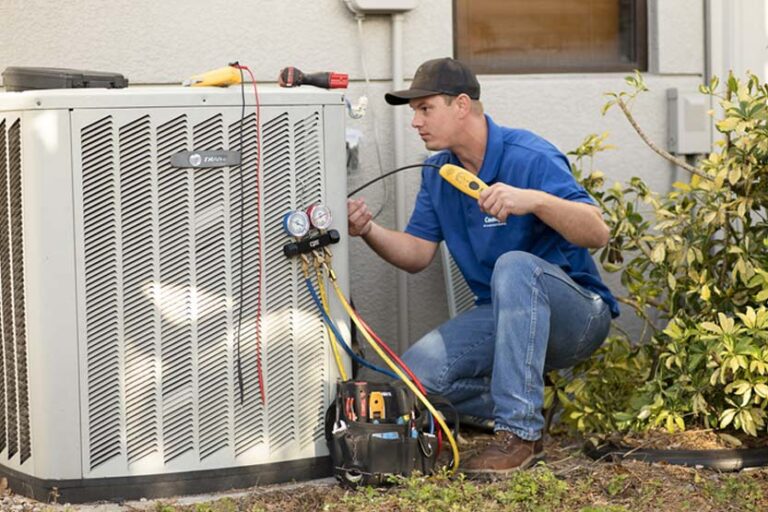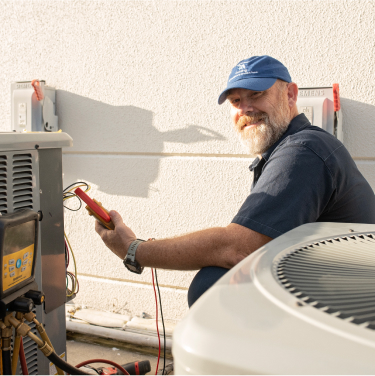
It may feel cozy and comfortable being sealed in tight against the cold in your home during the colder months of the year, but for people who are sensitive to indoor allergens or have respiratory problems, winter can aggravate problems. Stale indoor air and heating systems can increase the amount of allergy-inducing particles such as dust mites, pet fur, and mold spores circulating through your house.
Improving air quality in your home is essential for maintaining a healthy living environment. As an HVAC contractor, Caloosa Cooling has several recommendations that can help homeowners achieve cleaner, fresher air indoors. Here’s a guide on how to enhance indoor air quality.
How to Improve Air Quality in Your Home?

1. Regular Maintenance of HVAC Systems
- Filter Replacement: Regularly replace or clean the air filters in your HVAC system. Dirty filters restrict airflow and can recirculate dust and other allergens.
- Professional Inspections: Schedule annual inspections of your heating and cooling systems to ensure they are operating efficiently and not contributing to poor air quality.

2. Use of Air Purifiers
- HEPA Filters: Consider using air purifiers with High-Efficiency Particulate Air (HEPA) filters, especially in bedrooms and living areas. HEPA filters can capture ultrafine particles, reducing allergens like pollen, pet dander, and dust mites.
3. Control Humidity Levels
- Dehumidifiers: Use dehumidifiers in damp areas of your home, like basements, to prevent mold growth.
- Humidifiers: In dry climates or during winter, use humidifiers to add moisture to the air, but ensure to maintain the humidity level around 30-50%.
4. Ventilation Improvements
- Natural Ventilation: Open windows when weather permits to allow fresh air to circulate and dilute indoor pollutants.
- Ventilation Systems: Consider installing or upgrading ventilation systems, especially in high-moisture areas like kitchens and bathrooms.
5. Reducing Indoor Pollutants
- Avoid Smoking Indoors: Tobacco smoke contains numerous pollutants detrimental to indoor air quality.
- Limit Use of Volatile Organic Compounds (VOCs): Be cautious about using products that emit VOCs, like certain paints, cleaning products, and air fresheners. Opt for natural or low-VOC products.
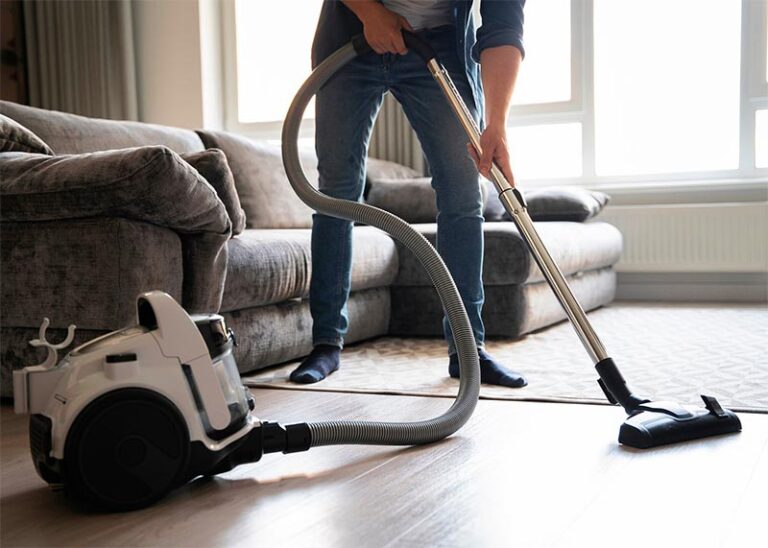
6. Regular Cleaning
- Dust and Vacuum Regularly: Regular cleaning can significantly reduce dust and pet dander.
- Deep Cleaning Carpets: Carpets can trap pollutants; consider deep cleaning them periodically.
7. House Plants for Air Purification
- Natural Air Purifiers: Some houseplants, like spider plants and peace lilies, can help purify the air, though their effectiveness is limited in comparison to air purifiers.

8. Smart Thermostats
- Automated Air Quality Control: Smart thermostats can help maintain optimal temperature and humidity levels, contributing to better air quality.
9. Awareness and Education
- Stay Informed: Keep up to date with the latest products and practices in indoor air quality.
- Professional Advice: Consult with HVAC professionals for personalized recommendations based on your home’s specific needs.
Are Your Air Ducts Clean?
Without regular maintenance your air ducts can contain elements that lead to allergy problems. The expert technicians at Caloosa Cooling can help your family breath better and will advise you on UV lights, filters, can clean and recommend filter options, and advise improvements to your air handler. We also offer the most comprehensive Maintenance Service in the market.



